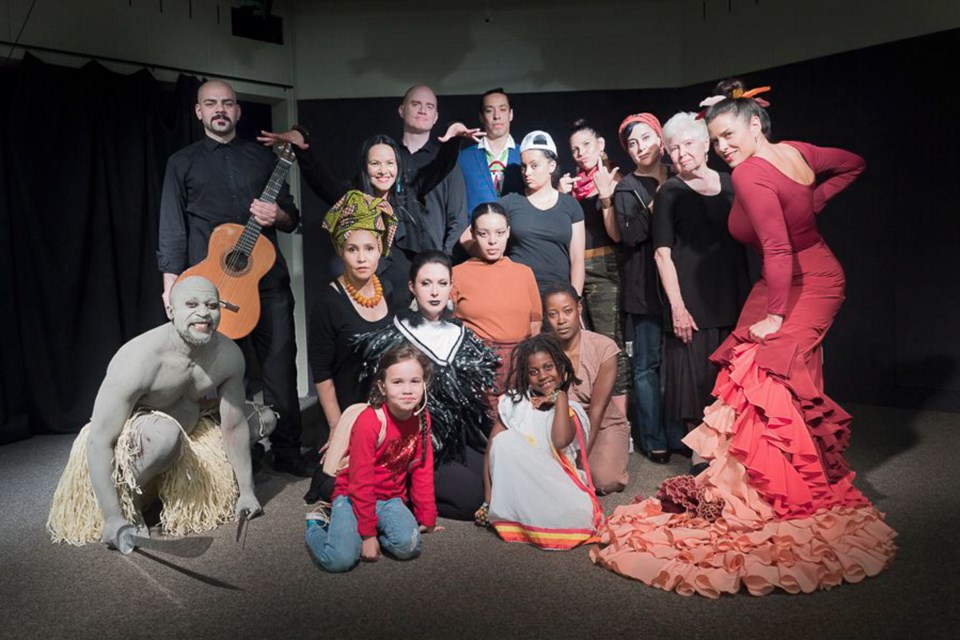The Inter-Cultural Cultural Association of Greater Victoria, with help from the Victoria Foundation, has developed im:print, an art presentation that gives a creative voice to Indigenous, settler, immigrant and refugee artists.
The hour-long multidisciplinary performative art presentation weaves the personal stories of the artists as they speak, dance and sing of their relationship to place and people.
“This ambitious presentation is an experiment to give a voice to some in the community that you don’t always hear,” said Paulina Grainger, manager of arts and community engagement for the association. “Im:print celebrates the connections while still questioning barriers that still exist.”
She admits the performance, by local collectives and solo artists from diverse disciplines, deals with subject matter that is not always comfortable for the audience.
“It is meant to be unsettling, to rub up against, to question, to cause introspection and provoke deep discussions,” she said.
“We want to provoke an audience into questioning its own relationship to community and the real implications of diversity and inclusion.”
Artists utilize space, lighting, live music, movement and text — monologues, poems, songs and skits — to speak about the story of arrival, colonial history, the hurt to the people of the land, integration and the feeling of belonging.
She says staging the performance created its share of challenges as artists grappled with unsettling questions in their relationship with one another and society.
“We strived to create a space for the artists that was not threatening — somewhere they could share, play and work together.”
The presentation has only been performed a few times, including a conference by the Canadian Council for Refugees, a non-governmental organization and a performance for the community at large.
Buoyed by the positive reaction to the presentation by audiences, Grainger is hopeful that funding can be found to perform more shows in coming years.
“On a personal and collective level, we have to invest in this relationship.”
For more information, go to icavictoria.org.



